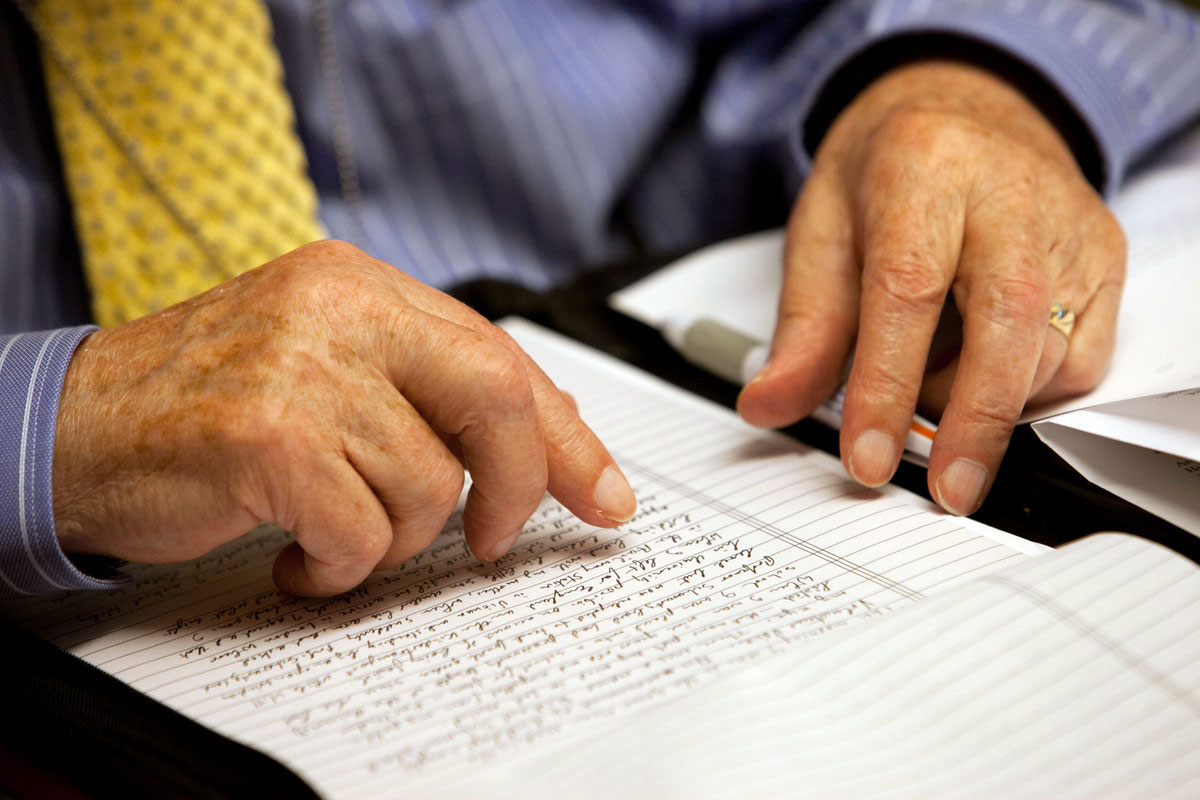Read reflections and testimonies written by Holocaust survivors in their own words.
-
Our Poor Shtetl is Burning!
November 1, 2015
After the Allied armies liberated Belgium and it was safe once again for us to go out in public, my parents started attending social events here and there in Brussels. Perhaps because they didn’t want to leave me home alone—I was around eight or nine years old—I often went with them to cafés where American musicians played jazz, balls where my parents danced, nightclubs where comedians told slightly off-color jokes in Yiddish, a movie theatre where we saw the movie The Dybbuk, and other social events attended by Jews who, like us, had lived through the war in hiding and who had not seen each other in years. Also in attendance were some of the very few Jews who had survived deportation to the Nazi camps. At the time, the word Holocaust hadn’t yet been coined. In Yiddish, people said: “Wir hoben dus mit gemacht” (We went through that).
-
On Reassuming My Identity
November 1, 2015
My earliest memory dates to the German invasion of Belgium in May 1940; I wasn’t quite three years old yet. My sister, Rosi, and my brother, Mani, being quite a few years older than I, had memories that reached back to our lives in Berlin before the war. They remembered also being smuggled into Belgium on September 26, 1938, at the exact time Hitler was giving a history-making speech on the radio. He asserted that the three and a half million Germans living in the Sudetenland in Czechoslovakia, a state created artificially by the Allies in 1918, were being expelled and exterminated by the Czechoslovakian government. He stated that his patience had run out, and he was demanding the return of that territory to Germany. One might even conclude that Der Führer’s fiery nationalistic speech facilitated our escape from Germany by distracting the border guards.
-
On to Marseille
November 1, 2015
Frustrated after many weeks on the farm vainly awaiting developments, my mother decided to take the family to Marseille, the largest French seaport metropolis on the Mediterranean in Provence. She had hopes of personally seeking out the Persian legation for assistance in securing an exit visa for the four of us shown on Mother’s Persian passport. We arrived in the second largest city in France in mid-October 1941 with what little money Mother had managed to salvage.
-
Summer
November 1, 2015
I just put my suitcase on my bed. I am so excited because I am going for three weeks to stay with my best friend, Selma. Mama has made some beautiful new clothes for me—skirts and blouses. I think I have everything ready to pack. I wish that I had some sandals this year; I only have brown shoes with shoelaces. Maybe we can find sandals next year. Since the war they have not been in the shoe stores, and even shoes are still rationed.
-
The Selection
November 1, 2015
I had never known what the word means. I had never dreamt that my life would depend on it. I had never imagined that one day someone would have the power, just by looking at me, to decide whether I would live or die—and that just by the movement of a hand pointing in the direction I was supposed to move, my fate would be decided.
-
Shrapnel
November 1, 2015
In the summer of 1944, I was in hiding in a Catholic boarding school in Montfermeil, a Paris suburb made famous by the episode in Victor Hugo’s Les Misérables where Jean Valjean meets Cosette, sent by the Thénardiers to fetch water in the woods. I was about the age of Cosette when I was there, hidden in that school. My sisters and I had been sent to Montfermeil after two police inspectors had come to our home to take us away.
-
Some Were Neighbors
November 1, 2015
When I saw this title of the upcoming exhibit at the United States Holocaust Memorial Museum, I felt that couldn’t have thought of a more meaningful one, so true was it in our case. This is how we lived during World War II in occupied France. While most were indifferent or just struggling, trying to survive in difficult circumstances, some were fighting in the resistance, some were helping, and some were in the militia, doing the dirty jobs for the occupying forces.
-
Letter to a World War II Veteran
November 1, 2015
Dear Veteran,
This is to express my gratitude for your sacrifice during World War II. I was a hidden child in Paris, France, pursued by Nazi invaders and their French collaborators who were doing the dirty job of rounding up people like me to send us to the gas chambers in Auschwitz. Were it not for people like you, who braved the enemy fire to liberate Europe from the tyranny of the Nazi regime, I might not be here today.
-
Coming to America
November 1, 2015
Fifty years ago in May, I fulfilled my dream of coming to America.
-
Theodor Herzl: One Man’s Dream
November 1, 2015
I recently attended the third annual gala of the Friends of the Israeli Defense Forces (FIDF), Washington, DC, chapter. It gave me great pride to see hundreds of people gathered there with the purpose of raising money for the IDF. I could not help thinking back to my childhood in the 1930s in Polana, Czechoslovakia. As Jews, we were content living in a democracy that gave us hope for a bright future.


